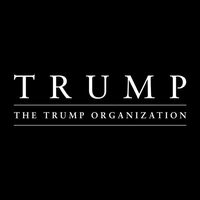The Tariff Tug-of-War: A Global Economic Standoff
April 9, 2025, 3:45 am

Location: Belgium, Brussels-Capital, Brussels
Employees: 1001-5000
Founded date: 1958
Total raised: $310.85K
In the arena of global trade, a fierce battle rages. The United States and China, two titans of the economy, are locked in a tariff war that feels more like a high-stakes poker game. Each side raises the stakes, daring the other to fold. The latest round began with President Trump’s audacious threat of a 50% tariff on Chinese goods. In response, China vowed to “fight to the end.” The air is thick with tension, and the world watches closely.
The backdrop of this conflict is a series of escalating tariffs. Trump’s initial 34% tariff on Chinese imports triggered a swift retaliation from Beijing. China imposed a reciprocal 34% levy, igniting a cycle of retaliatory measures. The stakes are high, and the consequences could ripple through the global economy.
China’s commerce ministry did not mince words. They accused the U.S. of “blackmail,” calling the tariff threat “a mistake on top of a mistake.” State media echoed this sentiment, branding Trump’s tactics as “naked extortion.” The language is fierce, reflecting the seriousness of the situation. Both sides are digging in, unwilling to show weakness.
As the clock ticks down to the implementation of the new tariffs, global markets are on edge. Monday saw steep losses, with Hong Kong’s Hang Seng Index plunging dramatically. However, a slight rebound followed as Asian markets adjusted to the news. China’s blue-chip stocks gained 0.7%, while Japan’s Nikkei jumped 6% after a late-night call between Trump and Japanese Prime Minister Shigeru Ishiba. This highlights the interconnectedness of global markets. One country’s turmoil can send shockwaves across the globe.
Experts are weighing in on the implications of this standoff. The consensus is clear: whoever blinks first risks losing face and leverage. China appears steadfast, unwilling to concede. They fear that any sign of weakness will embolden Trump to demand even more. This is a game of chicken, and both sides are determined to hold their ground.
Meanwhile, the fallout is not limited to the U.S. and China. The European Union is also feeling the heat. In response to Trump’s tariffs, the EU has proposed 25% counter-tariffs on a wide range of U.S. products. They are calling for a “zero for zero” tariff deal, aiming to de-escalate tensions. Taiwan, too, is seeking talks, emphasizing its trade surplus driven by U.S. demand for advanced tech components. The web of global trade is intricate, and each move has far-reaching consequences.
The question looms: will either side blink? Or are we barreling toward an all-out trade war? The stakes are not just economic; they are political and social. A trade war could lead to job losses, increased prices, and economic instability. The global economy is a delicate balance, and this conflict threatens to tip it.
Across the Atlantic, Europe is also bracing for impact. German Economy Minister Robert Habeck believes that Trump will “buckle under pressure” if Europe unites against his tariffs. He argues that a collective response is essential. The lessons learned from past economic dependencies, particularly on Russian energy, weigh heavily on European leaders. They are determined not to repeat history.
Outgoing German Chancellor Olaf Scholz has voiced strong opposition to Trump’s tariff decisions, labeling them “fundamentally wrong.” He warns that these poorly thought-out measures will harm the global economy. The U.S. is Germany’s most important trade partner, and the implications of a trade war could be dire for the German economy.
The DAX index has already felt the strain, dipping significantly in response to the news. German government bonds are also taking a hit, reflecting investor anxiety. The financial markets are reacting to the uncertainty, and the ripple effects are felt far and wide.
European Commission President Ursula von der Leyen has stated that the EU is preparing countermeasures if negotiations fail. The call for negotiation is clear, but the path forward is fraught with challenges. The desire for cooperation exists, but the stakes are high, and trust is in short supply.
As the deadline for the new tariffs approaches, the world holds its breath. The outcome of this standoff could reshape global trade dynamics for years to come. Will the U.S. and China find a way to negotiate a resolution? Or will they continue down this path of confrontation?
In the end, this tariff tug-of-war is more than just a battle of numbers. It’s a test of resolve, strategy, and the future of international relations. The global economy is watching, and the stakes have never been higher. The world waits for a sign, a signal that could either lead to a resolution or plunge us deeper into conflict. The game is on, and the players are ready.
The backdrop of this conflict is a series of escalating tariffs. Trump’s initial 34% tariff on Chinese imports triggered a swift retaliation from Beijing. China imposed a reciprocal 34% levy, igniting a cycle of retaliatory measures. The stakes are high, and the consequences could ripple through the global economy.
China’s commerce ministry did not mince words. They accused the U.S. of “blackmail,” calling the tariff threat “a mistake on top of a mistake.” State media echoed this sentiment, branding Trump’s tactics as “naked extortion.” The language is fierce, reflecting the seriousness of the situation. Both sides are digging in, unwilling to show weakness.
As the clock ticks down to the implementation of the new tariffs, global markets are on edge. Monday saw steep losses, with Hong Kong’s Hang Seng Index plunging dramatically. However, a slight rebound followed as Asian markets adjusted to the news. China’s blue-chip stocks gained 0.7%, while Japan’s Nikkei jumped 6% after a late-night call between Trump and Japanese Prime Minister Shigeru Ishiba. This highlights the interconnectedness of global markets. One country’s turmoil can send shockwaves across the globe.
Experts are weighing in on the implications of this standoff. The consensus is clear: whoever blinks first risks losing face and leverage. China appears steadfast, unwilling to concede. They fear that any sign of weakness will embolden Trump to demand even more. This is a game of chicken, and both sides are determined to hold their ground.
Meanwhile, the fallout is not limited to the U.S. and China. The European Union is also feeling the heat. In response to Trump’s tariffs, the EU has proposed 25% counter-tariffs on a wide range of U.S. products. They are calling for a “zero for zero” tariff deal, aiming to de-escalate tensions. Taiwan, too, is seeking talks, emphasizing its trade surplus driven by U.S. demand for advanced tech components. The web of global trade is intricate, and each move has far-reaching consequences.
The question looms: will either side blink? Or are we barreling toward an all-out trade war? The stakes are not just economic; they are political and social. A trade war could lead to job losses, increased prices, and economic instability. The global economy is a delicate balance, and this conflict threatens to tip it.
Across the Atlantic, Europe is also bracing for impact. German Economy Minister Robert Habeck believes that Trump will “buckle under pressure” if Europe unites against his tariffs. He argues that a collective response is essential. The lessons learned from past economic dependencies, particularly on Russian energy, weigh heavily on European leaders. They are determined not to repeat history.
Outgoing German Chancellor Olaf Scholz has voiced strong opposition to Trump’s tariff decisions, labeling them “fundamentally wrong.” He warns that these poorly thought-out measures will harm the global economy. The U.S. is Germany’s most important trade partner, and the implications of a trade war could be dire for the German economy.
The DAX index has already felt the strain, dipping significantly in response to the news. German government bonds are also taking a hit, reflecting investor anxiety. The financial markets are reacting to the uncertainty, and the ripple effects are felt far and wide.
European Commission President Ursula von der Leyen has stated that the EU is preparing countermeasures if negotiations fail. The call for negotiation is clear, but the path forward is fraught with challenges. The desire for cooperation exists, but the stakes are high, and trust is in short supply.
As the deadline for the new tariffs approaches, the world holds its breath. The outcome of this standoff could reshape global trade dynamics for years to come. Will the U.S. and China find a way to negotiate a resolution? Or will they continue down this path of confrontation?
In the end, this tariff tug-of-war is more than just a battle of numbers. It’s a test of resolve, strategy, and the future of international relations. The global economy is watching, and the stakes have never been higher. The world waits for a sign, a signal that could either lead to a resolution or plunge us deeper into conflict. The game is on, and the players are ready.
